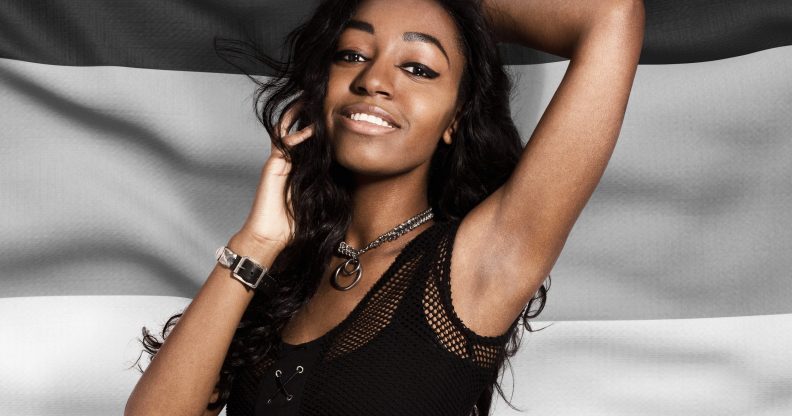The Many Voices of Pride: Yasmin’s story

“If I ever see that flag flying I know there is someone I can relate to.” (Uber)
The LGBT+ community is made of many different identities, all of which are as valid and important as the others, and every single one deserves to fly their flag with pride.
For Pride 2019, PinkNews has teamed with Uber to tell stories that show how important visibility is to a diverse rainbow of sexual and gender identities.
This is Yasmin’s story…
How do you identify?
I identify as asexual and aromantic. Asexual means you don’t experience sexual attraction or you experience a very low degree of sexual attraction.
It’s a spectrum, so some people do experience it a bit more than others. Aromantic means when you don’t experience romantic attraction either.
When did you first understand what it means to be asexual or aromantic?
I noticed it around the time everyone’s hormones kicked in and boys and girls started to fancy each other. I assumed this would kick in for me but it didn’t and people started to take notice.
It was only when people started questioning me about it, that I had to start working out what was different about me.
Did you know anyone else like you?
The only time I saw people sort of like me represented in the media was bad guys in movies — it’s usually the awkward ones with no social skills who don’t experience sexual attraction.
I couldn’t relate to those characters and the unfortunate thing is that it shaped other people’s views of what asexual and aromantic people must be like, and I had to battle against those stereotypes.
If you don’t experience sexual attraction or romantic attraction, society teaches you that there must be something severely lacking in your mind and in your life.
How important is it for representation at Pride?
There is definitely a lack of asexual representation at Pride. Unfortunately there’s still a debate within the wider queer community about whether we’re supposed to be included, whether the A is for us, and whether we should be at Pride.
So it’s something which needs to be improved.
I definitely still support Pride as it is today and I think in doing that I bring the representation for asexual people that I’ve always wanted to see at Pride.
What does the asexual flag mean to you?
For me, the flag is our unifying symbol. If I ever see that flag flying I know there is someone I can relate to.
It doesn’t matter how old they are, what ethnicity they are, what nationality they are, how long they’ve know they are asexual for or where they are on the spectrum, it’s just a big umbrella for everybody.
Read all the personal stories from the Many Voices of Pride campaign here.
How did this story make you feel?

